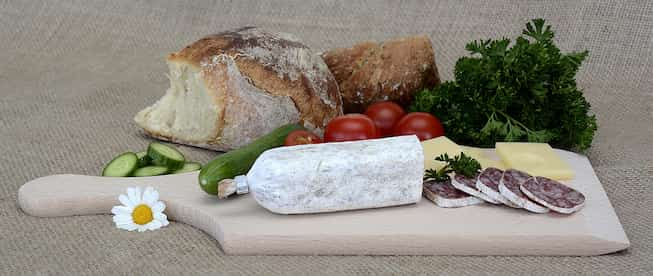Most foods are seasonal in nature and are available fresh only during certain times of the year. In order to enjoy these foods all through the year, it is a good idea to dehydrate them. Dehydrated foods can be preserved for a large period of time without spoilage. Some examples of foods that are preserved this way are dried cheese, dried mushrooms, dried fruits, etc.
METHODS OF DEHYDRATING FOOD
The concept of dehydrating food and preserving it for later months has been around for a very long time.
Traditionally, sun drying was the method that was being used widely. It is still rampantly used in areas where the temperatures are around 100°F / 38°C and the weather is not humid. The hot sun draws out the moisture in the food effectively and over the course of 3-4 days, the food items are dehydrated well. However, in areas where there are unpredictable weather conditions, where it rains frequently, or where the humidity levels are high, this method is not very suitable or effective.
An easy method of dehydrating food indoors is to dehydrate them in the oven. The temperature of the oven needs to be set to really low (150 °F / 65°C) and the oven will need to work for 5-8 hours. The food will also need to be thinly sliced, arranged on baking sheets and rotated every hour or so and flipped over so that the moisture from the food can be drawn out completely.
If you do not have the luxury of living in a dry climate or need to dehydrate food with more frequency, it is advisable to invest in a food dehydrator. The machine comes with automatic temperature controls so that the food inside does not get burnt and inbuilt timers ensure that the food can be kept overnight for drying without extra supervision.
USES OF DEHYDRATING FOOD
You may argue that when it is possible to eat fresh food, why is it required that we dehydrate food items and preserve them. While fresh food is tasty and enjoyable, there are a lot of benefits of preserving food through the process of dehydration.
- Saving in Time, Money, and Energy – When you have the advantage of dehydrating food, it becomes possible to buy food in bulk quantities and store them for use over a longer period. This not only saves money since larger quantities of food can be bought at a discount, it also saves the time and energy spent in shopping and prepping the food.
- More Energy with Less Amount of Food – Dehydrating foods like fruits helps to concentrate sugars and pack more nutrients into smaller packages. Eating small amounts of dried fruits and nuts can provide the same amount of energy as fresh fruits while reducing the intake portions on your plate.
- Concentration of Antioxidants and Fibres – By dehydrating fruits and vegetables, it is possible to have natural and healthy food made available in concentrated form. They make a great alternative to snacks and junk food available in the market while helping you to gain nutrition.
- Reduction of Wastage – When you have more food at home than can be consumed fresh, it often goes to waste. By dehydrating the food, it is possible to preserve the food for later use and reduce chances of spoilage from storing.
